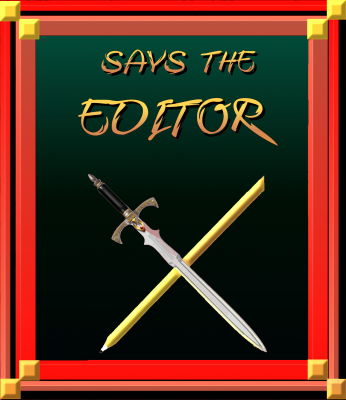February 21, 2018

So I’m reading this book. It’s too early to say if it’s a good book, but the author is well celebrated, and I’ve followed her on social media for years. She’s had a hell of a career, the sort that anyone would be envious of and strive to emulate, even when writing in other genres and categories.
But… the second chapter is set in 1999. As in the year 1999. And something I encountered stopped me cold.
I laughed because why not.
What’s wrong with that, you ask. People talk that way all the time.
Except… in 1999, they most certainly did NOT. That construction is much, much newer than 1999. I’d say it’s newer than 2009, even. I’d cautiously put money down on the year 2012. Somewhere in there.
Regardless, pulling your reader out of your story isn’t exactly what you want to be doing if you’re the writer. And you really don’t want them jerking out for something so… small.
I know… most people won’t catch this. Even more won’t think it’s a big deal. You may be among those.
A lot of readers don’t care that certain historical fiction authors aren’t even close to the facts. That doesn’t mean authors can willy-nilly abandon their obligation and the readers’ expectation that their historical fiction is accurate and authentic.
But there are readers who do care. About phrases that were and weren’t used at the end of the Twentieth Century. About the accuracy of historical novels. About authenticity and the trust they put into an author to present the world as it was in whatever year they’re writing about, be it 1999 or 1899.
So who do you cater to? How do you choose?
Well, you do your best. You make sure you’re working with a team who will catch these small things. If you can’t be sure your editor will, do your best to find beta readers who will.
All you can ever do is your best. Sometimes, it’ll bite you. Sometimes, it’ll save you.
Do your best. And yes, stop and think about how people used to talk. You’ll be surprised to see what’s entered our language over the past few years alone.
Gina
February 21, 2018 7:16 am
Some words and phrases are older than we think. I recently read The Tenant of Wildfell Hall (1848) by Anne Bronte and was surprised by how many times I had to stop and think, “They were saying that in the 1800s?!!” BTW, it a really good story once you get into it.
Susan
February 21, 2018 9:26 am
Yeah, I spend a lot of time checking the first usage of words on certain manuscripts, but this phrase caught me because I KNOW it is more recent than 1999. 100% positive. And I’ve found a couple other instances of this, as well. Language evolves over time, and so do idioms. If authors want to set a book in the recent past and make it sound authentic (and not like a flashback), they need to be aware of this.